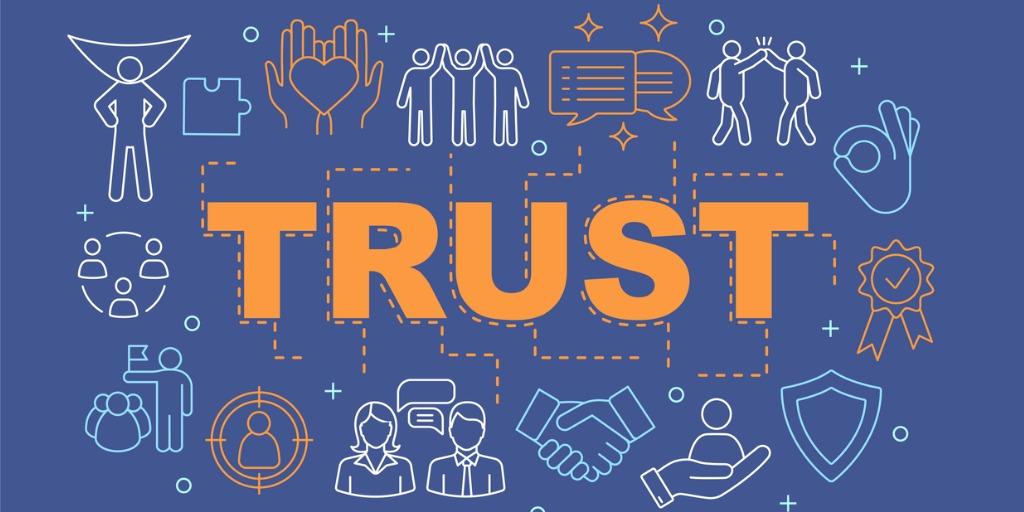Building Trust is Essential for Improving Society

- Trust is an essential part of a functioning society.
- Public trust has eroded dramatically in the last two decades.
- Leaders can take steps to build trust and improve performance within their organizations.
Political trust refers, broadly, to the belief that institutions and processes are operating in good faith. We often refer to vertical trust (the belief that leaders are acting in what they think are the best interests of society) and horizontal trust (the belief that our fellow citizens are likely to follow the rules and laws of society.) Trust is a prospective judgment (though often influenced by past experience) about how much individuals can rely on others to act according to established rules and norms.
Trust is an essential component of a free, democratic society. Faith in the process of laws and elections leads to a decrease in violence, an increase in social programs, and a willingness to sacrifice temporary individual interests in favor of collective societal interests. Political trust is especially important in times of crisis when citizens need reliable guidance from political leadership. For example, in the event of an epidemic, which always carries risk and uncertainty, it is essential that citizens trust the advice of public health officials in order to protect themselves and their communities.
Unfortunately, political trust has declined dramatically in the last few decades. Most researchers trace the decline in trust to the increase in party polarization in the U.S. Liliana Mason, for example, found that Americans increasingly combine their partisan identity with other kinds of group identities (race, religion, etc.) creating both stronger in-group attachments and out-group revulsions. It is easier to distrust (and demonize) the opposition when you feel like you have absolutely nothing in common with them.
A decline in trust not only affects how Americans view politics, but how they view other institutions as well, including the workplace. As polarization has increased we have become more distrustful of other citizens, including our fellow co-workers. There has also been a decrease in trust in employer leadership, with workers decreasingly confident in employers’ leadership abilities, and willingness to deal fairly and honestly with them.
This is a problem because trust is associated with better performance. People perform at their peak when they can trust their coworkers to do their part, and they believe in management’s plan, and they think management has at least some interest in their well-being. Trust in the organization encourages workers to invest their best efforts rather than just getting by, and follow guidance from leadership even when they may not see an immediate benefit.
Rebuilding trust in political institutions is a long-term project that will require a massive collective effort, and long-term policy success. In the meantime, there are some steps that leaders can take to build trust locally in their own organizations. Research in political trust and deliberation has shown some possible strategies.
First, transparency and dialogue can build trust in leadership decisions. Research on participation shows that citizen engagement increases the perceived legitimacy of leadership decisions. Letting more people contribute to the discussion can also lead to better decision making and an increase in horizontal trust.
This dialogue can also help organizations meet their workers’ needs, which increases trust. A consistent finding in the political trust literature is that trust increases with political responsiveness. When people perceive that politicians respond to their needs and problems, they are more likely to trust in the political process.
Finally, employers can increase organizational trust by investing in their workers. Paying overtime and allowing new training opportunities increases employees’ sense of value. In the same way that political trust increases when citizens feel empowered, employees’ trust in their employer increases when they see that their employers value them and their contributions.
Note that all of these solutions cost time, and some cost money. Building trust requires leaders invest resources in that goal. The pay-off is an organization with more dedicated and efficient workers who have an investment in the organization and its goals.
Subscribe to receive our weekly updates directly to your inbox!


